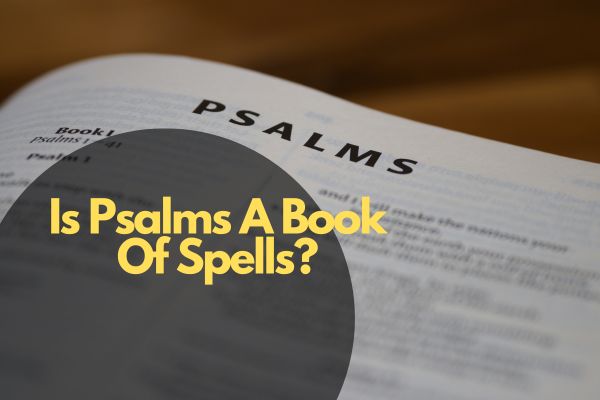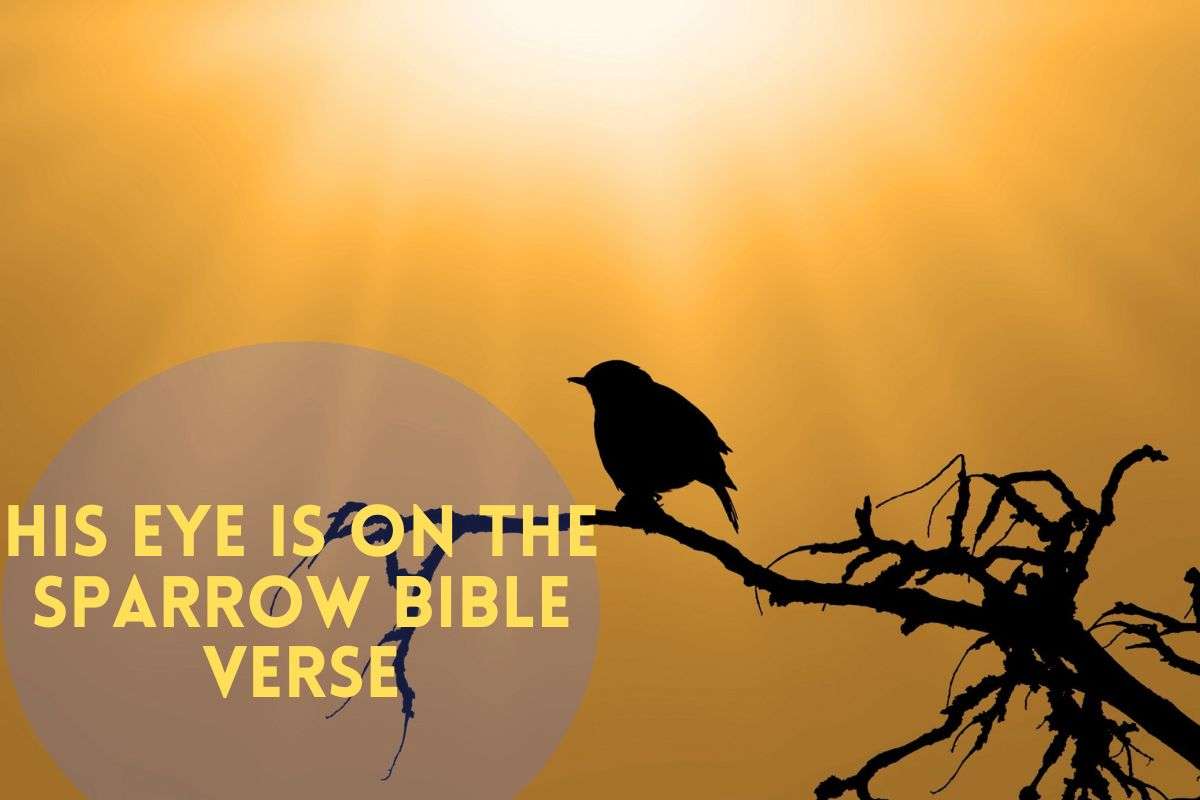The Book of Psalms is a profound and poetic collection of sacred texts found in the Bible. Its verses are often recited, chanted, and sung in both individual and communal worship settings. However, over time, misconceptions and misunderstandings have arisen regarding the nature of Psalms. One such misconception is the belief that Psalms can be used as “spells” to manipulate outcomes. In this article, we will explore the Book of Psalms, its historical and spiritual significance, and address the question: Is Psalms a book of spells?
Is Psalms A Book Of Spells?
The Book of Psalms, found in the Old Testament of the Bible, is not a book of spells in the traditional sense. It is a collection of religious and poetic writings attributed to King David and other biblical figures. The Book of Psalms consists of 150 individual psalms, which are songs, prayers, and expressions of faith, lament, and praise.
While the psalms contain language that might seem mystical or poetic, their primary purpose is to provide spiritual guidance, comfort, and inspiration to those who read and recite them. The psalms cover a wide range of human emotions and experiences, including thanksgiving, repentance, praise, and requests for divine help.
Some people have used specific psalms for personal prayers or meditations, believing in their power to connect with the divine or seek divine intervention. However, this is a matter of personal belief and spirituality and not the same as the practice of casting spells, as commonly understood in witchcraft or occult traditions.
In summary, the Book of Psalms is not a book of spells but a collection of religious and poetic writings with deep spiritual and historical significance within the Judeo-Christian tradition.
Psalms as Poetry and Prayer
The Book of Psalms, found in the Old Testament of the Bible, is a collection of 150 poetic and prayerful songs and hymns. These psalms are often attributed to King David, though they were likely composed by various authors over many centuries. They are deeply meaningful to both Jews and Christians and are used in various religious and devotional settings. Here’s a closer look at Psalms as poetry and prayer:
1. Poetry: Psalms are a prime example of Hebrew poetry, characterized by parallelism, vivid imagery, and metaphors. Some common types of parallelism in the Psalms include:
Synonymous parallelism: Lines that express similar or contrasting ideas.
Antithetic parallelism: Lines that contrast or balance ideas.
Synthetic parallelism: Lines that build upon or complete each other’s meaning.
The poetic nature of the Psalms makes them highly artistic and expressive. They convey deep emotions, from praise and thanksgiving to lament and supplication.
2. Prayer: The Psalms serve as a collection of prayers, and they cover a wide range of human experiences and emotions. They can be used as a guide for personal and communal prayer and reflection. The different types of Psalms include:
Psalms of praise and thanksgiving: These express gratitude and adoration for God’s greatness and goodness.
Psalms of lament: These express grief, sorrow, and the human experience of suffering. They often ask God for help and relief.
Psalms of supplication: These are pleas for divine intervention, guidance, or protection.
Psalms of wisdom and instruction: These offer moral and practical guidance for living a righteous and faithful life.
Royal Psalms: These focus on the relationship between the king (often King David) and God, emphasizing God’s role in the establishment and preservation of the monarchy.
Historical Psalms: These recount the history of the Jewish people and their relationship with God.
3. Universality: The themes and emotions expressed in the Psalms are universal and can resonate with people of all faiths and backgrounds. This makes them a source of inspiration and comfort for many individuals, even those who may not belong to the Judeo-Christian tradition.
4. Use in Worship: Psalms are a fundamental part of both Jewish and Christian worship. They are often recited, sung, or chanted during religious services. Many hymns and songs in various religious traditions are based on or inspired by Psalms.
5. Personal and Communal Use: The Psalms are versatile and can be used in both private and communal worship. They offer a way for individuals to express their innermost thoughts and feelings to God, and they are also suitable for use in group settings for collective prayer and reflection.
In summary, the Book of Psalms is a unique and cherished part of the Bible that combines the beauty of poetic expression with the power of prayer. It has played a central role in the spiritual lives of countless people over the centuries, offering solace, inspiration, and a means of connecting with the divine.
Misconceptions About Psalms
One common misconception is the belief that reciting specific Psalms can guarantee specific outcomes, almost as if they were magical spells. It’s crucial to debunk this myth and clarify the true purpose of Psalms.
The Power of Words in Psalms
Psalms emphasize the importance of words and intentions. They teach us that our words have the power to shape our experiences and attitudes. Positive intentions in our prayers can bring about positive change, but it’s not about manipulating the divine.
Psalms and Spirituality
Many individuals find deep spiritual connections with the Psalms. They turn to these sacred texts for guidance, comfort, and inspiration in their spiritual journeys. Psalms can aid in personal growth and self-reflection.
The Role of Faith
Faith plays a significant role in the Psalms. The authors express their unwavering trust in a higher power and believe that their prayers will be answered. These expressions of faith serve as a source of inspiration for believers.
Psalms and Positive Affirmations
The Book of Psalms in the Bible contains a collection of 150 poetic and lyrical songs or prayers. While the primary purpose of Psalms is spiritual and religious, many people find them to be a source of inspiration and positive affirmation. The Psalms cover a wide range of emotions and themes, and some of them can be interpreted as positive affirmations or expressions of hope and faith. Here are a few examples of Psalms that can be seen as sources of positive affirmation:
Psalm 23: “The Lord is my shepherd; I shall not want.”
This Psalm speaks of trust and contentment in God’s provision.
Psalm 27: “The Lord is my light and my salvation; whom shall I fear?”
This Psalm expresses confidence in God’s protection and strength.
Psalm 46: “God is our refuge and strength, a very present help in trouble.”
This Psalm emphasizes the idea that God is a source of strength and a refuge in times of trouble.
Psalm 118: “This is the day that the Lord has made; let us rejoice and be glad in it.”
A reminder to appreciate each day as a gift from God and find joy in it.
Psalm 139: “I praise you because I am fearfully and wonderfully made.”
A Psalm that affirms the value and uniqueness of every individual.
These Psalms and others like them can be used as affirmations or meditations to foster a positive and hopeful outlook, encourage trust in a higher power, and find comfort during challenging times. Many people turn to the Book of Psalms for inspiration and solace in various aspects of their lives.
Is There a Dark Side?
Some concerns have been raised about the potential misuse of Psalms for negative purposes. While the Psalms themselves are not inherently harmful, intentions behind their use can be either positive or negative.
Historical Uses of Psalms
Throughout history, Psalms have been used in various ways. They have played a role in shaping cultural and religious practices around the world. Understanding their historical significance provides insight into their enduring power.
Theological Perspectives
Different religious traditions have their interpretations of Psalms. Theological perspectives vary, but they all acknowledge the spiritual depth and significance of these sacred texts.
Biblical Verses on the Power of Words
Relevant Bible verses emphasize the power of words and intentions. These verses shed light on the concept of using words for positive influence. Here are some Psalms verses related to the power of words:
1. Psalm 19:14
“May these words of my mouth and this meditation of my heart be pleasing in your sight, Lord, my Rock, and my Redeemer.”
2. Psalm 141:3
“Set a guard over my mouth, Lord; keep watch over the door of my lips.”
3. Psalm 34:13-14
“Keep your tongue from evil and your lips from telling lies. Turn from evil and do good; seek peace and pursue it.”
4. Psalm 37:30
“The mouths of the righteous utter wisdom and their tongues speak what is just.”
5. Psalm 51:15
“Open my lips, Lord, and my mouth will declare your praise.”
6. Psalm 119:172
“May my tongue sing of your word, for all your commands are righteous.”
7. Psalm 71:8
“My mouth is filled with your praise, declaring your splendor all day long.”
8. Psalm 78:2
“I will open my mouth with a parable; I will utter hidden things, things from old.”
Debunking Myths
It’s crucial to address the notion of Psalms as “spells” and clarify that their purpose is not to manipulate outcomes. Psalms are expressions of faith, devotion, and trust in the divine.
Practical Applications
Practical tips for using Psalms for personal growth and well-being. How to incorporate Psalms into daily life in a meaningful way.
Conclusion
The Book of Psalms is not a book of spells. It is a collection of sacred texts that serve as a source of inspiration, guidance, and spiritual connection. Psalms are a reflection of the human experience and the unwavering faith in a higher power. They emphasize the power of words and intentions, but their true purpose is not to manipulate outcomes.
FAQs
1. Can I use Psalms for specific requests, like finding love or wealth?
Psalms can be used for guidance and inspiration, but their purpose is not to guarantee specific outcomes. They are expressions of faith and devotion.
2. Are Psalms only relevant to Christian believers?
No, Psalms have universal appeal and are respected in various religious traditions.
3. Can Psalms be used for personal affirmations and positive thinking?
Yes, many individuals find value in using Psalms for maintaining a positive outlook on life.







